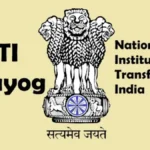New Initiatives in India’s Green Energy Sector
India has recently taken significant strides in advancing its green energy sector with the launch of several new initiatives aimed at promoting sustainable energy sources. The government has introduced a comprehensive framework designed to enhance the country’s renewable energy capacity and reduce its carbon footprint. This ambitious plan is not only pivotal for environmental sustainability but also plays a crucial role in India’s economic growth.
Overview of the New Initiatives
The newly launched initiatives encompass a wide range of measures including financial incentives for renewable energy projects, streamlined processes for obtaining permits, and the establishment of new research and development centers. These efforts are geared towards accelerating the deployment of solar, wind, and other renewable energy technologies. The government aims to achieve a renewable energy capacity of 500 GW by 2030, underscoring its commitment to transitioning towards cleaner energy sources.
Importance of Renewable Energy in India
With a rapidly growing population and increasing energy demands, India faces the challenge of ensuring energy security while mitigating environmental impacts. The shift towards renewable energy is vital in addressing these issues. By investing in green technologies, India can reduce its reliance on fossil fuels, lower greenhouse gas emissions, and contribute to global climate change mitigation efforts. This transition is expected to create numerous job opportunities in the renewable energy sector, further supporting economic growth.
Public and Private Sector Collaboration
The success of these initiatives hinges on robust collaboration between the public and private sectors. The government is encouraging private investments in renewable energy projects by offering tax benefits and subsidies. This collaboration is essential for mobilizing the required resources and expertise to meet India’s ambitious renewable energy targets. Moreover, partnerships with international organizations and countries can facilitate knowledge sharing and technological advancements, further boosting India’s green energy capabilities.

Why This News is Important
Addressing Climate Change
The recent initiatives in India’s green energy sector are critical in the global fight against climate change. As one of the largest carbon emitters, India’s commitment to increasing its renewable energy capacity is a significant step toward achieving global climate goals. By transitioning to cleaner energy sources, India can reduce its greenhouse gas emissions, contributing positively to the environment.
Economic Growth and Job Creation
The push towards renewable energy is expected to stimulate economic growth by creating a plethora of jobs in the renewable energy sector. As new projects are launched, there will be a demand for skilled labor, which can significantly reduce unemployment rates and enhance livelihoods across the country. This initiative aligns with India’s broader economic goals and can boost overall economic productivity.
Energy Security
With the increasing reliance on imported fossil fuels, India’s energy security is at risk. By investing in domestic renewable energy sources, the country can achieve greater energy independence. This shift not only stabilizes energy prices but also protects the nation from the volatility of global energy markets. Ensuring energy security is crucial for maintaining economic stability and growth.
Technological Advancements
The focus on renewable energy will drive innovation and technological advancements in the energy sector. Investments in research and development will pave the way for new technologies that improve energy efficiency and reduce costs. This innovation cycle can enhance India’s position as a leader in renewable energy technologies on a global scale.
Global Leadership
By implementing ambitious renewable energy initiatives, India positions itself as a global leader in the fight against climate change. This leadership role can enhance India’s diplomatic standing and foster international collaborations aimed at addressing environmental challenges. India’s proactive stance in renewable energy can inspire other nations to adopt similar measures, amplifying the global impact of such initiatives.
Historical Context
India’s journey towards renewable energy began in the early 2000s with the establishment of the Ministry of New and Renewable Energy (MNRE). Over the years, the government has introduced various policies and schemes to promote solar, wind, and biomass energy. The National Solar Mission, launched in 2010, aimed to establish India as a global leader in solar energy production. Since then, India has made remarkable progress, achieving significant milestones in renewable energy capacity. However, challenges such as policy inconsistencies, financing issues, and infrastructure limitations have hindered rapid growth. The recent initiatives mark a renewed commitment to overcoming these barriers and enhancing the country’s green energy landscape.
Key Takeaways from New Initiatives in India’s Green Energy Sector
| S.No | Key Takeaway |
|---|---|
| 1 | India aims to achieve a renewable energy capacity of 500 GW by 2030. |
| 2 | The government is offering financial incentives to promote private investments in renewable energy projects. |
| 3 | The transition to renewable energy is crucial for addressing climate change and reducing carbon emissions. |
| 4 | Collaboration between the public and private sectors is essential for successful implementation. |
| 5 | The initiatives are expected to create job opportunities and stimulate economic growth. |
Important FAQs for Students from this News
What is the primary goal of India’s new green energy initiatives?
The main goal is to enhance India’s renewable energy capacity to 500 GW by 2030 and reduce the country’s carbon footprint while promoting sustainable energy sources.
What types of renewable energy are being prioritized in India’s initiatives?
The initiatives focus on solar, wind, and biomass energy as the primary renewable sources to be developed.
How will these initiatives impact job creation in India?
The initiatives are expected to create numerous job opportunities in the renewable energy sector, contributing to economic growth and reducing unemployment.
What role does public and private sector collaboration play in these initiatives?
Collaboration is crucial for mobilizing resources, expertise, and investments necessary for the successful implementation of renewable energy projects.
How does India’s push for renewable energy relate to global climate goals?
By increasing its renewable energy capacity, India aims to significantly reduce greenhouse gas emissions, thereby contributing to global efforts in mitigating climate change.
Some Important Current Affairs Links

















